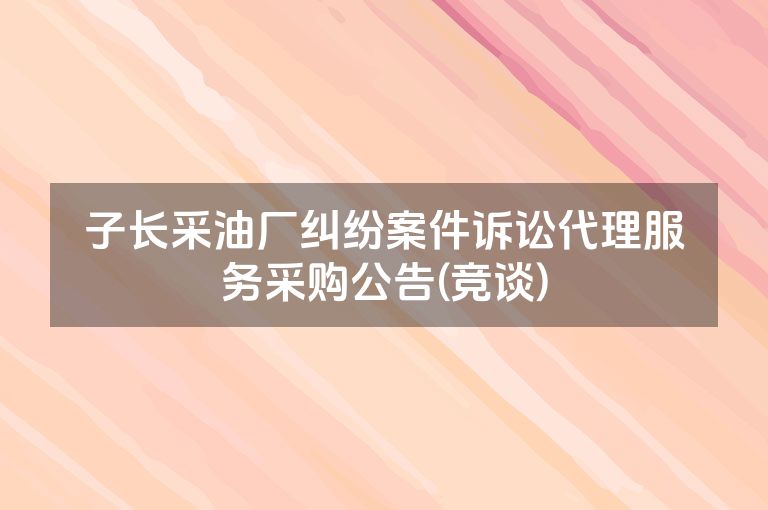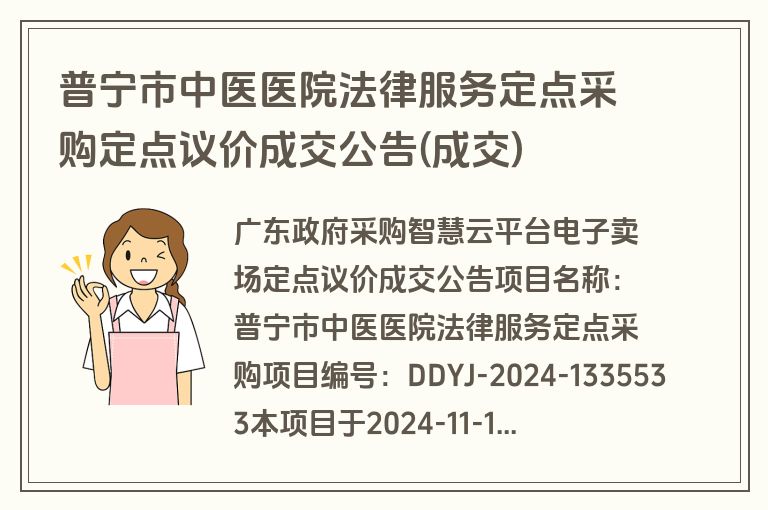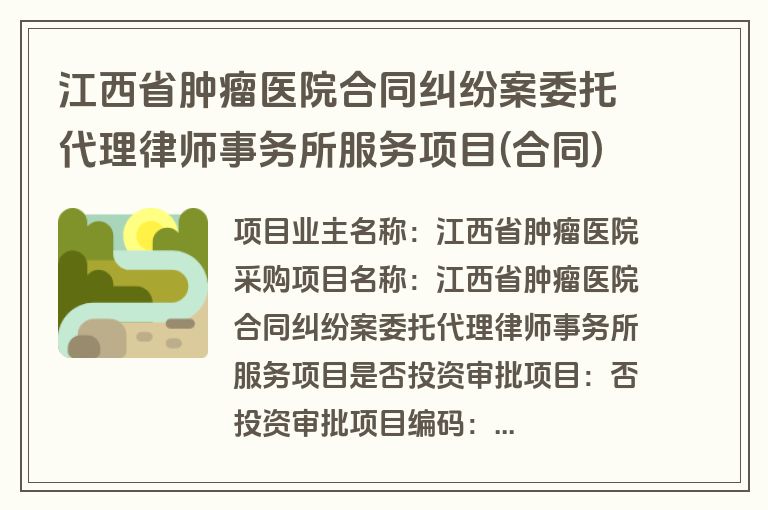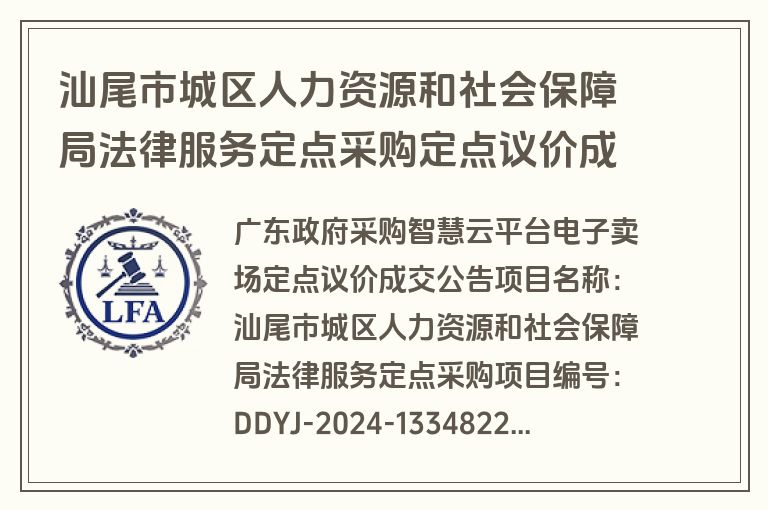广东省高级人民法院发布8起“促进新质生产力发展”知识产权保护典型案例之一:微某公司诉简某公司等不正当竞争纠纷案——未经授权调用服务器API接口获取数据构成不正当竞争
原告Ryanair(瑞安)是欧洲最大的廉价航空公司(下称“瑞安航空”),拥有830条廉价航线,总部位于爱尔兰。被告PR Aviation是一家荷兰的OTA平台(Online Travel Agency,中文译为“在线旅行社”),其运营网站www.wegolo.com,为用户提供廉价航班信息,用户可以通过该网站比较相关航线和价格,并进行预订。为此,该网站通过自动化手段获取必要的信息,包括从瑞安航空的网站上提取数据。瑞安航空声称其网站是唯一有权销售机票的平台,任何第三方在机票销售中进行的转售行为都是非法的。其依据欧洲第96/9/EC号指令2,以及荷兰依据该指令落实的法律,对PR Aviation公司提起诉讼,称后者侵犯了其著作权和数据库的特殊权利,要求PR Aviation公司赔偿损失3。此外,瑞安航空还称,PR Aviation违反了瑞安航空网站的使用条款和条件。除非事先签订许可协议,这些条款和条件(“GCUs”)禁止以商业目的提取和使用相关数据。瑞安航空网站的访问者在使用网站之前必须在方框内打勾,才能视为接受这些条款和条件。相反,PR Aviation则主张依欧盟第96/9/EC号指令,它抓取的数据属于可自由运用他人公开数据库之中单纯事实部分的数据。
The plaintiff Ryanair (Ryanair) is the largest low-cost airline in Europe (hereinafter referred to as "Ryanair"), with 830 low-cost routes, headquartered in Ireland. The defendant PR Aviation is a Dutch OTA platform (Online Travel Agency, translated as "Online Travel Agency" in Chinese), operating the website www.wegolo.com, which provides users with low-cost flight information. Users can compare related routes and prices through the website and make reservations. To this end, the website obtains necessary information through automated means, including extracting data from Ryanair's website. Ryanair claims that its website is the only platform entitled to sell tickets, and any resale by third parties in ticket sales is illegal. Based on Directive 96/9/EC of the European Union and the laws implemented by the Netherlands in accordance with this directive, Ryanair sued PR Aviation, alleging that the latter infringed on its copyright and special rights of the database, and demanded compensation for losses from PR Aviation. In addition, Ryanair also stated that PR Aviation violated the terms and conditions of use of Ryanair's website. Unless a license agreement is signed in advance, these terms and conditions ("GCUs") prohibit the extraction and use of relevant data for commercial purposes. Visitors to Ryanair's website must check the box before they can be deemed to accept these terms and conditions. On the contrary, PR Aviation argues that according to Directive 96/9/EC of the European Union, the data it scrapes belongs to the data that can be freely used in the simple factual parts of others' public databases.
在2010年7月的一审判决中,瑞安航空关于PR Aviation违反第96/9/EC号指令的诉讼请求被乌得勒支法院驳回,但根据荷兰国家法律中保护非原创著作的具体规定,PR Aviation涉嫌侵犯瑞安航空根据荷兰国家法律享有的权利部分得到支持。随后PR Aviation提出上诉,瑞安航空提出交叉上诉。2012年3月,阿姆斯特丹法院推翻了乌得勒支法院判决驳回了瑞安航空的交叉上诉,认为即使瑞安航空的数据受数据库指令保护,根据适用的荷兰著作权法,PR Aviation使用瑞安航空的数据也是正常和合法的,瑞安航空不能使用网站条款限制第三方对数据的使用。法院补充认为,瑞安航空在创建数据库时并没有“实质性投入”,所以无法获得数据库的保护。
In the first-instance judgment in July 2010, Ryanair's claim that PR Aviation violated Directive 96/9/EC was dismissed by the Utrecht Court, but the part where PR Aviation allegedly infringed upon the rights that Ryanair enjoyed under Dutch national law according to the specific provisions protecting non-original works was upheld. Subsequently, PR Aviation filed an appeal, and Ryanair filed a cross-appeal. In March 2012, the Amsterdam Court overturned the judgment of the Utrecht Court and dismissed Ryanair's cross-appeal, believing that even if Ryanair's data was protected by the database directive, according to the applicable Dutch copyright law, PR Aviation's use of Ryanair's data was normal and legal, and Ryanair could not use website terms to restrict third parties from using data. The court added that Ryanair did not make a "substantial investment" when creating the database, so it could not obtain database protection.
瑞安航空随后向荷兰最高法院提出质疑,认为其数据不属于第96/9/EC号指令下的著作权,也不属于特别权利的保护范围。荷兰最高法院决定中止诉讼并将以下问题提交欧洲法院进行初步裁决:第一,第96/9/EC号指令的适用范围是否也包括根据该指令第2章不受著作权保护、根据第3章也不受特殊权利保护的在线数据库?即通过(无论是否类比)适用第6(1)条和第8条;第二,第96/9/EC号指令第15条来使用此类数据库的自由是否不得受到合同限制?
Ryanair then challenged the Dutch Supreme Court, arguing that its data did not fall under the copyright or special rights protection under Directive 96/9/EC. The Dutch Supreme Court decided to suspend the proceedings and submit the following questions to the European Court for a preliminary ruling: First, does the scope of application of Directive 96/9/EC also include online databases that are not protected by copyright according to Chapter 2 of the directive and are not protected by special rights according to Chapter 3? That is, by applying Article 6(1) and Article 8 either literally or by analogy; Second, is the freedom to use such databases under Article 15 of Directive 96/9/EC not subject to contractual restrictions?
欧盟法院认为瑞安航空提供的数据,不属于受到著作权法或数据库权的保护的数据,并表示,网站经营者无法通过著作权排除他人未经授权使用其本身数据内容时,仍可以以服务条款限制其他企业以攫取方式自动抓取、收取网站资料的行为。2015年1月,法院最终裁定瑞安航空有权禁止PR Aviation以自动化系统抓取网站数据后转为商业使用。
The European Court held that the data provided by Ryanair did not belong to data protected by copyright law or database rights, and stated that when website operators cannot exclude others from using their data content without authorization through copyright, they can still restrict other companies from automatically scraping and collecting website data through service terms. In January 2015, the court finally ruled that Ryanair had the right to prohibit PR Aviation from scraping website data with an automated system for commercial use.
上述瑞安航空诉PR Aviation BV案中,欧洲法院从瑞安航空是否具有数据库权的角度以及航空公司数据是否可以通过合同限制数据抓取进行了论证。
In the aforementioned case of Ryanair v. PR Aviation BV, the European Court argued from the perspective of whether Ryanair had database rights and whether airline data could be restricted by contract for data scraping.
第96/9/EC号指令中规定了两种数据库保护,即指令第3至第6条规定的第一种保护适用于“因其内容的筛选或编排而构成作者凭借自己的智力创造”的数据库;指令第7至第11条规定的第二种保护形式包括基于特殊权利的保护,并根据以下条件适用第7条第(1)款规定:“在获取、核实或输出(obtaining, verification or presentation)内容方面进行了大量质量和/或数量的(substant Directive 96/9/EC stipulates two types of database protection, that is, the first type of protection applicable to databases "by virtue of the selection or arrangement of their contents which, by reason of the intellectual creation of the author," is stipulated in Articles 3 to 6 of the directive; the second form of protection stipulated in Articles 7 to 11 of the directive "includes protection based on special rights, and applies to databases which, by reason of the qualitative and/or quantitative substantial investment in the obtaining, verification or presentation of their contents, are protected under the conditions provided for in Article 7(1): 'Databases which, by reason of the substantial investment in the obtaining, verification or presentation of their contents, are protected under the conditions provided for in Article 7(1).'"ial)实质性投入的数据库”。
该指令第6条第(1)款、第8条和第15条还规定了数据库合法用户的强制性权利,不适用于不受版权保护或不受该指令规定的特殊权利保护的数据库,因此它不妨碍采用有关此类数据库使用条件的合同条款。指令旨在实现数据库创建者的权利与此类数据库的合法用户(即该人授权使用数据库的第三方)的权利之间的平衡。即确保权利所有者在被授予广泛的专有权以奖励(reward)为创建数据库而付出的智力劳动和/或资金投入的同时,不能阻止数据库的合法用户从事某些符合一般公共利益的活动。另一方面,不受指令保护的数据库开发者也不能从这种广泛的自动保护中受益。有鉴于此,只要在适用的国家法律的允许情况下,他们有权以合同安排来保护自己的数据库。
Article 6(1), Article 8, and Article 15 of the directive also stipulate the mandatory rights of legal users of databases, which do not apply to databases that are not protected by copyright or special rights under the directive, so it does not prevent the use of contractual terms regarding the use of such databases. The directive aims to achieve a balance between the rights of database creators and the rights of legal users of such databases (i.e., the person authorized to use the database by a third party). That is to ensure that while the right holders are granted extensive exclusive rights to reward the intellectual labor and/or financial investment made in creating the database, they cannot prevent legal users of the database from engaging in certain activities that are in line with the general public interest. On the other hand, developers of databases not protected by the directive cannot benefit from this extensive automatic protection. In view of this, as long as it is allowed under the applicable national law, they have the right to protect their databases through contractual arrangements.
最终,欧洲法院基于对第96/9/EC号指令的解释,认为其不适用于不受版权保护或不受该指令所规定的特殊权利保护的数据库,认定瑞安航空所经营的并非第96/9/EC号指令所规定的数据库,而是一种副本,不享有数据库权。在不影响适用国家法律的情况下,不排除此类数据库的作者对其数据库规定合同限制由第三方使用。
Ultimately, the European Court, based on the interpretation of Directive 96/9/EC, held that it does not apply to databases that are not protected by copyright or special rights under the directive, and determined that the database operated by Ryanair is not a database as defined by Directive 96/9/EC, but a copy, and does not enjoy database rights. Without affecting the applicable national law, it does not exclude the author of such databases from setting contractual restrictions on the use of their databases by third parties.
事实上,在此案件前后,瑞安航空就数据抓取侵犯其数据权利对多个平台提起上诉,而各国的判决结果却千差万别。
In fact, before and after this case, Ryanair has appealed to multiple platforms for data scraping infringing on its data rights, and the results of the judgments in various countries are very different.
在Ryanair v. Vtours案中,汉堡法院确认瑞安航空的禁止条款仍然有效,能够防止 Vtours.de网站非法截取瑞安航空的网站,以及非法向其客户销售瑞安航空的机票,并在未经授权的情况下暗中加价。但法院并没有就网站条款是否合法发表意见。4
In the case of Ryanair v. Vtours, the Hamburg Court confirmed that Ryanair's prohibition clause is still valid and can prevent the Vtours.de website from illegally intercepting Ryanair's website, as well as illegally selling Ryanair's tickets to its customers and secretly raising prices without authorization. However, the court did not comment on the legality of the website terms.
都柏林高等法院在Ryanair Ltd v Billigfluege一案中指出,瑞安航空的使用条款可以通过其网站上随时可见的超链接访问。法官认为,这“公平地提请另一方注意”,并得到了充分的通知。提供信息构成使合同具有法律约束力的充分对价行为。因此,法院认为双方之间存在数据抓取方面具有法律约束力的合同。但法院并没有作出实质性的判决,也未宣布使用条款的其余部分有效。5
The High Court in Dublin, in the case of Ryanair Ltd v Billigfluege, pointed out that the terms of use of Ryanair can be accessed through hyperlinks visible at any time on its website. The judge believed that this "fairly draws the attention of the other party" and has been fully notified. Providing information constitutes a sufficient performance to make the contract legally binding. Therefore, the court believes that there is a legally binding contract between the two parties in terms of data scraping. However, the court did not make a substantive judgment and did not declare the rest of the terms of use valid.
但在更多情况下,法院都驳回了上述请求,并作出了有利于OTA的裁决。
However, in more cases, the court has rejected the above requests and made rulings in favor of OTA.
例如,米兰法院判决的瑞安航空与意大利两家主要OTA平台之间的两起诉讼6,驳回了瑞安航空的所有诉讼请求并以不正当竞争和滥用支配地位为由,要求瑞安航空向OTA支付损害赔偿金。除此以外,米兰法院裁定由瑞安航空航班信息组成的数据集既不能享受版权保护,也不能享受自成一类的权利保护,因此,相关的OTA向其客户提供此类数据并无过错。另外,瑞安航空网站的GCU(当时的版本)对据称通过屏幕抓取瑞安航空数据的主体不具有约束力,因为通过违反数据提取限制的行为本身,被指控的屏幕抓取者表达了其不接受瑞安航空所提出的条款的意愿。
For example, in the two lawsuits between Ryanair and the two major OTA platforms in Italy, the Milan Court dismissed all litigation requests of Ryanair and demanded Ryanair to pay damages to OTA on the grounds of unfair competition and abuse of a dominant position. In addition, the Milan Court ruled that the dataset composed of Ryanair flight information is neither entitled to copyright protection nor to a separate category of rights protection, so the relevant OTA has no fault in providing such data to its customers. In addition, the GCU (the version at the time) of Ryanair's website does not bind the subject allegedly scraping Ryanair's data through screen scraping, because the act of violating data extraction restrictions itself expresses the willingness of the accused screen scraper not to accept the terms proposed by Ryanair.
在这是否存在合同关系方面,巴黎商事法院在Ryanair v. Vivacances案中认可OTA和航空公司网站之间存在竞争,瑞安航空和Vivacances公司不存在合同关系,且Vivacances并未对瑞安造成损害,故而驳回其全部诉讼请求。7
In terms of the existence of a contractual relationship, the Paris Commercial Court, in the case of Ryanair v. Vivacances, recognized that there is competition between OTA and airline websites, and there is no contractual relationship between Ryanair and Vivacances, and Vivacances has not caused damage to Ryanair, so it dismissed all its litigation requests.
2014年4月30日,德国联邦最高法院作出的裁决表示赞同这一观点所依据的判决之一是:在Cheap Tickets v. Ryanair的诉讼中,法兰克福法院得出结论认为,Cheap Tickets公司提供的元搜索引擎方便用户进行搜索。在这种情况下,以消费者的名义甚至以自己的名义预订瑞安航空的航班,本身并不侵犯瑞安航空的权利。8
On April 30, 2014, the Federal Supreme Court of Germany made a ruling that agreed with one of the judgments on which this view is based: in the lawsuit of Cheap Tickets v. Ryanair, the Frankfurt Court concluded that the meta search engine provided by Cheap Tickets facilitates users to search. In this situation, booking Ryanair flights on behalf of consumers or even in their own name does not infringe upon Ryanair's rights.
而在Ryanair Ltd. v.Atrapalo S.L一案中,西班牙最高法院认为不存在数据库,而只有一个计算机程序,该程序允许通过根据先前输入的参数生成所要求的信息来获得所请求的信息。无论如何,即使人们承认它是一个数据库,也不能承认它的结构是原创的,因为其内容的筛选和排列不是其作者的智力创造的结果,而是从计算机程序中得出的,而原创性在任何情况下都只能以软件为前提。同样,省法院澄清说,即使承认数据库的存在,也不宜通过数据库制造者的特殊权利来对其进行保护。正如一审法院认为的那样,瑞安航空对该数据集合没有满足《知识产权法》第133条规定的对“大量投资”的要求。即制造者要想获得这种数据库的特殊权利保护,需要为获取、核实或输出其内容而使用时间、精力或其他类似性质的投资,并对其进行定性和定量评估。9
In the case of Ryanair Ltd. v.Atrapalo S.L, the Supreme Court of Spain believed that there is no database, but only a computer program that allows obtaining the requested information by generating the required information according to previously entered parameters. In any case, even if it is admitted that it is a database, its structure cannot be considered original, because the selection and arrangement of its content are not the result of the intellectual creation of its author, but are derived from the computer program, and originality can only be premised on software in any case. Similarly, the provincial court clarified that even if the existence of the database is admitted, it should not be protected by the special rights of the database manufacturer. As the court of first instance believed, Ryanair did not meet the requirement of "substantial investment" stipulated in Article 133 of the Intellectual Property Law for this data set. That is, in order for the manufacturer to obtain such special rights protection for the database, it needs to invest time, energy or other similar qualities in obtaining, verifying or outputting its content, and carry out qualitative and quantitative evaluation.
从意大利法律的角度来看,瑞安航空提出的对OTA使用航班数据施加合同限制可能也是值得讨论的。
From the perspective of Italian law, Ryanair's proposal to impose contractual restrictions on the use of flight data by OTAs may also be worth discussing.
由上述案例可以看到,部分国家对于航空公司这类平台提出的格式条款采取限制的态度,不允许平台随意通过合同约束用户对平台数据的使用。在我国,网络社交媒体平台往往以屏幕抓取侵犯其数据权利提起诉讼,虽然这类平台与航空公司平台存在较大不同,但就案件本身来说,仍存在极大相似之处。比如在我国微梦公司(微梦公司系新浪微博平台weibo.com的运营者)诉简亦迅一案中10,微梦公司指控,被告简亦迅公司未经许可,恶意使用技术手段在其经营的iDataAPI网站提供11项新浪微博的付费API数据接口,对微梦公司的微博数据进行抓取、存储、售卖。法院最终认定,微梦公司享有其对于平台数据的全部权利,认为简亦迅存在不正当竞争行为,侵犯了微梦公司的数据权利。并没有对新浪微博平台各类数据进行区分。另外,在微梦公司对其他平台发起的类似诉讼中,法院皆对微梦公司的诉讼请求表示支持,并认为这类平台可以通过条款对用户进行约束。11但该案逻辑是否能够作为未来中国法院裁决此类案件的指引?一刀切模式是否完全合理,而不存在任何问题,例如导致本属于公共数据的资源无法得到充分利用?
From the above case, it can be seen that some countries take a restrictive attitude towards the standard terms proposed by platforms such as airlines, and do not allow platforms to restrict users' use of platform data through contracts at will. In China, social media platforms often sue for data scraping infringing on their data rights, although there is a big difference between such platforms and airline platforms, there are still great similarities in the case itself. For example, in the case of Weibo (Weibo is the operator of the Sina Weibo platform weibo.com) v. Jian Yixun, Weibo accused the defendant Jian Yixun Company of maliciously using technical means to provide 11 paid API data interfaces of Sina Weibo on its operated iDataAPI website, scraping, storing, and selling Weibo data. The court ultimately determined that Weibo has all rights to the platform data and believes that Jian Yixun has unfair competition and infringes on Weibo's data rights. It did not distinguish the various types of data on the Sina Weibo platform. In addition, in similar lawsuits initiated by Weibo against other platforms, the court has supported Weibo's litigation requests and believes that such platforms can restrict users through terms. But can this logic be used as a guide for future Chinese court rulings on such cases? Is the one-size-fits-all model completely reasonable and without any problems, such as preventing the full utilization of public data resources that should belong to the public?
在欧盟的《1997年版权和数据库权利条例》12中对数据库版权和数据库权进行了区分,数据库版权中,“作者”一词用于识别创建数据库版权作品的人。其所有者可能是其他人。第一版权所有人一般是作品的作者,除非该作品是由雇员在受雇期间创作的。在这种情况下,雇主是第一版权所有人,除非有任何相反的协议。而在数据库权的规定中,数据库的创建者,即“主动获取、核实或输出数据库内容,并承担投资获取、核实或输出风险”的人,是数据库权的第一所有者。这项内容可以由多人承担,在这种情况下,数据库权可以共同拥有。13
In the EU's "Regulations on Copyright and Database Rights (1997)," the copyright of the database and database rights are distinguished. In the database copyright, the term "author" is used to identify the person who created the database copyright work. Its owner may be someone else. The first copyright owner is generally the author of the work, unless the work was created by an employee during his or her employment. In this case, the employer is the first copyright owner unless there is any contrary agreement. In the database rights, the creator of the database, that is, the person who "actively obtains, verifies or outputs the content of the database and assumes the risk of investment to obtain, verify or output," is the first owner of the database rights. This content can be undertaken by multiple people, and in this case, database rights can be jointly owned.
我国虽然没有数据库权这一定义,但在微博这类网络社交媒体平台中,是否可以将用户发布的内容和微博平台自身进行的处理混为一谈?假设我国未来引入数据库权这一定义,那么,微博平台对用户数据的加工处理是否又能够达到实质性投入的程度?又是否承担了相当的风险呢?笔者认为不能将二者混为一谈,在这种情况下,如果数据被窃取,发布者的权益被侵害,发布者受到的损失是内容被窃取而产生的损失,而平台受到损失是其针对作为整体的数据进行处理加工而获利的损失。如果由平台对侵权方进行了诉讼,平台能获得的损害赔偿仅对应其加工损失的投入。类似汇编作品侵权的情形,一个汇编作品是数个原作者著作权的合集,若著作权侵权人侵犯了汇编作品的著作权,汇编作品著作权人可以获得损害赔偿与原作者可以获得的损害赔偿应对各自独立。
Although China does not have the definition of database rights, can the content published by users and the processing of the Weibo platform itself be confused in social media platforms such as Weibo? Assuming that China will introduce the definition of database rights in the future, can Weibo's processing of user data reach the extent of substantial investment? And has it taken on considerable risks? The author believes that the two should not be confused. In this case, if the data is stolen, the loss suffered by the publisher is the loss of the content theft itself, and the loss suffered by the platform is the loss of processing and processing the data content. If the platform sues the infringer, the platform can only obtain compensation for the loss corresponding to its processing loss. Similar to the infringement of the compilation work, a compilation work is a collection of several original author's copyright. If the copyright infringer infringes the copyright of the compilation work, the copyright owner of the compilation work can obtain compensation for the loss and the original author can obtain compensation for the loss respectively.
此外,网络社交媒体平台往往利用用户协议中繁复的格式条款,对用户使用平台进行了严格的限制,并在条款中规定用户发布的一切内容的各项权利属于平台,且平台可以在必要时自行进行诉讼。
In addition, social media platforms often use complex standard terms in user agreements to strictly restrict user use of the platform, and stipulate in the terms that all rights of all content published by users belong to the platform, and the platform can initiate litigation on its own when necessary.
在上述2013年的两项裁决中,米兰法院裁定此类条款协议不具有约束力,主要有以下两个原因。第一,那些被指控对瑞安航空的数据进行屏幕抓取的OTA从未表示接受此类条款协议。第二,对于OTA所代表的瑞安航空机票销售中介的消费者而言也是如此。因为瑞安航空所提出的许多合同条款都是繁琐的,因此被视为“无理取闹”(vexatious)。根据意大利法律,“无理取闹”条款(vexatious clauses)是无效的,除非消费者在接受合同其他部分的基础上通过签字认可的方式明确表示接受。事实上在意大利,通过点击鼠标而签订的合同的有效性是有争议的,尤其是涉及到包含“无理取闹”条款的协议和管理B2C关系的协议。
In the two rulings in 2013, the Milan Court ruled that such term agreements are not binding, mainly for the following two reasons. First, the OTAs accused of screen scraping Ryanair's data have never expressed acceptance of such term agreements. Second, the same is true for consumers represented by OTAs as intermediaries for Ryanair ticket sales. Because many of the contract terms proposed by Ryanair are cumbersome, they are considered "vexatious." According to Italian law, "vexatious" clauses are invalid unless consumers explicitly accept them by signing on the basis of accepting other parts of the contract. In fact, in Italy, the validity of contracts signed by clicking the mouse is controversial, especially agreements involving "vexatious" clauses and agreements managing B2C relationships.
具体到微梦公司诉简亦迅一案,同意用户协议是用户使用微博前提条件,这可以认为是一种变相的强制同意,剥夺了用户的知情同意权,构成属于《民法典》第497条规定的“排除对方主要权利的格式条款无效”情形。除非不使用微博,用户在这种情况下并没有拒绝的权利。但这种复杂的条款通常不会被用户所看到,用户并没有清楚地了解到其与平台签订的合同具体内容是什么,即便用户能注意到此类约定发布内容权属的复杂条款,实际上也不了解其签订协议的行为背后的意义。
Specifically, in the case of Weibo v. Jian Yixun, agreeing to the user agreement is a prerequisite for users to use Weibo, which can be considered a disguised forced consent, and deprives users of their right to informed consent, belonging to the situation of "invalid standard terms that exclude the main rights of the other party" stipulated in Article 497 of the Civil Code. Unless you do not use Weibo, users do not have the right to refuse in this situation. However, such complex terms are usually not seen by users, and users do not clearly understand what the specific content of the contract they have signed with the platform is, even if users can notice such complex terms as the ownership of published content rights, they do not actually understand the significance behind their behavior of signing the agreement.
此外,这类案件的解决过程中,还应考虑到,阻止比价活动很可能会限制消费者的知情权,不利于市场竞争。根据现有司法判决,网络社交媒体平台往往得到法院的支持,进一步增强其市场竞争力,更容易形成垄断。这一行为极大地挤压了小型公司的生存空间,不利于良好市场的形成,从而导致消费者只能从几大平台获取信息,而获取信息的前提条件是与平台签订上述协议。而在意大利和其他绝大多数欧盟司法管辖区,消费者的知情权是受到严格保护的。
Additionally, in the resolution of such cases, it should be considered that preventing price comparison activities is likely to restrict consumers' right to information and is not conducive to market competition. According to existing judicial decisions, online social media platforms are often supported by the courts, further enhancing their market competitiveness and making it easier for them to form monopolies. This behavior greatly squeezes the survival space of small companies and is not conducive to the formation of a healthy market, leading to a situation where consumers can only obtain information from a few major platforms, with the prerequisite of obtaining information being the signing of the aforementioned agreements with the platforms. In Italy and in the vast majority of other EU jurisdictions, the right to information for consumers is strictly protected.
我国数据基础法律制度尚不完善,仍有一些重要问题亟需解决。比如,数据与信息的关系的问题,数据权益的性质与权能问题。此外,对于数据分类也并没有明确的划分标准。在社交媒体平台中,用户发布的内容是否可以认定为平台完全掌握的数据?平台发布的协议是否能够赋予平台对于全部数据的绝对控制权?法院在认定过程中实质性投入的标准和尺度是什么,是否有努力就能视为存在实质性投入?是否应当引入“数据库权”这一定义,或设立一个类似定义以区分数据库权利人和数据版权人?
Chinese basic legal systems of data are not perfect. There are some important issues that urgently need to be resolved. For instance, the relationship between data and information, as well as the nature and rights of data right. There are no explicit standards for data classification. On social media platforms, can the content posted by users be recognized as data that the platform fully controls? Can the agreements published by the platforms grant them absolute control over all data? What are the standards and scales for substantial investment in the recognition process by the courts, and can any effort be considered as substantial investment? Should the definition of "database rights" be introduced, or should a similar definition be established to differentiate between database rights holders and data copyright owners?
现今,我国数据立法还很少,在司法实践中仍有许多判决无依据可循,而现有法律留下的诸多空白尚未填补,在实施的过程中又产生了新的问题和争议。这些都需要各方的进一步努力,促进实践与理论更好地结合,在研究国外先例的基础上,寻找适合我国国情的新路径以解决数据问题。
At present, China's data-related laws are not enough, and there are still many judgments in judicial practice that have no basis to follow, and the many blanks left by existing laws have not been filled, and new problems and disputes have arisen in the process of implementation. These all require further efforts from all parties to promote a better combination of practice and theory, to find a new path suitable for China's national conditions to solve data issues based on the study of foreign precedents.
参考文献:
1.Case C-30/14,Ryanair Ltd v PR Aviation BV
2.European Directive 96/9/EC/EC
3.Case C-30/14,Ryanair Ltd v PR Aviation BV
4.Court of Appeal of Hamburg, Case Ryanair v. Vtours of 28 May 2009
5.Ryanair Ltd v Billigfluege.de GmbH [2010] IEHC 47
6.decision no. 7808/2013, Lastiminute.com v.Ryanair ; decision no. 7825/2013,Viaggiare v. Ryanair
7.Ryanair/Vivancances, Tribunal de Commerce de Paris, 6 February 2008
8.Court of Frankfurt, 21 August 2008 and Court of Appeal of Frankfurt, 5 March 2009 (Cheap Tickets BV v. Ryanair Ltd.)
9.Sts de 9 de Octubre de 2012, nº 572/2012
10.(2022)粤民终4541号
Case No. 4541 of Guangdong Civil Final Instance (2022)
11.(2021)京民终281号
Case No. 281 of Beijing Civil Final Instance (2021)
12.Copyright and Rights in Databases Regulations 1997 (SI 1997/3032)
13.https://harperjames.co.uk/article/intellectual-property-in-databases/#section-9
转载自中银律师事务所 程熙玥,郑佳
上一篇:已经是第一篇下一篇:管理人在破产案件中的履职智慧
本文2024-10-11 19:34:56发表“律法实务”栏目。
本文链接:https://www.cmprt.cn/article/4b6d7102c01269c8.html
您需要登录后才可以发表评论, 登录 或者 注册
最新文档
最新实务








